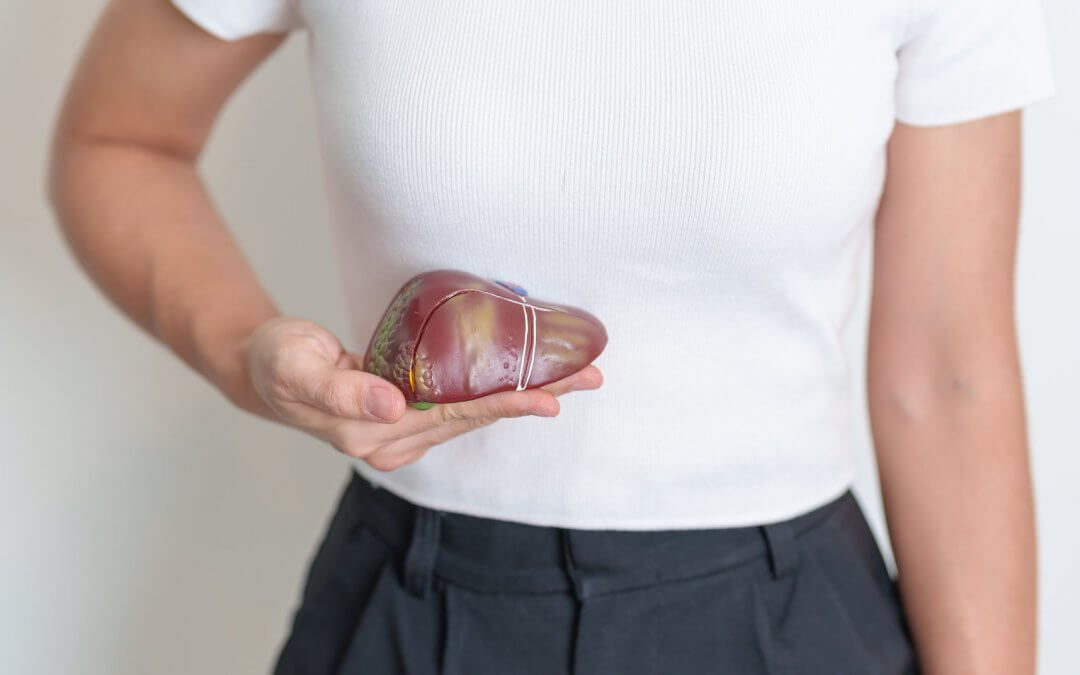One particularly exciting area is the use of umbilical cord stem cells in treating acute liver failure (ALF).
ALF is a life-threatening condition with limited treatment options, but new research suggests that umbilical cord-derived mesenchymal stem cells (UC-MSCs) could offer a promising solution.
What is Acute Liver Failure (ALF)?
Acute liver failure is a rare, though severe, condition comprising a rapid decline in liver function that can lead to severe health complications and even death if not treated promptly.
In the UK there are around 400 emergency admissions for ALF per year. Mortality rates for ALF are considerable: 60-90%. [1]
ALF is typically caused by viral infections, drug toxicity, or autoimmune diseases.
Most admissions in the UK were for paracetamol overdoses.
Current treatment options are limited to liver transplants or supportive care—both of which come with significant obstacles, including lack of available organs and financial expense. [2]
As a result, there is a growing need to explore alternative therapies, and stem cells from the umbilical cord show huge potential for application in treatment.
How could umbilical cord stem cells help?
The umbilical cord is a rich source of mesenchymal stem cells. These are cells that have the ability to differentiate into other specialised cell types in the body, as well as having immunomodulatory properties and the ability to secrete growth factors. [3]
While MSCs can be derived from various sources, including bone marrow and adipose tissue, numerous studies have shown that the use of mesenchymal stem cells derived from the umbilical cord in the treatment of ALF is associated with lower mortality rates and improved liver function. [4] [5]
It’s also been suggested that UC-MSCs are better positioned to both differentiate into hepatocyte-like cells (i-Heps) and promote the proliferation of hepatocyte cells within the liver. [6]
Hepatocyte cells are responsible for various processes within the liver, and cause inflammation when they become damaged, a contributing factor to ALF. [7]
The ability to either replace damaged hepatocyte cells or promote their proliferation using UC-MSCs could be hugely important in mitigating acute liver failure.
What’s the latest research into using umbilical cord stem cells for ALF?
A new clinical trial is currently underway exploring the use of mesenchymal stem cells derived from the umbilical cord (UC-MSCs) as a treatment option for ALF.
The trial, which is scheduled to conclude in 2028, will assess the safety and efficacy of UC-MSCs in cases of acute-on-chronic liver failure wherein patients experience sudden organ failure as a result of an underlying chronic liver disease.
A multi-centred, double blind and randomised placebo controlled trial, the new study will seek to validate previously promising findings about the use of MSCs in acute liver failure treatment.
Participants will be split into a control group and a treatment group, with those in the treatment group receiving either 3 or 5 intravenous infusions of mesenchymal stem cells depending on whether they are members of the short or prolonged treatment group.
Follow-ups will occur weekly up to 5 weeks and then at 8, 12, 24, and 53 weeks.
The trial will also seek to definitively determine whether umbilical cord-derived mesenchymal stem cells are more effective than other sources of MSCs in the treatment of acute liver failure. [8]
Cord blood banking and ALF treatment
This study is just one of many showing the therapeutic potential of umbilical cord stem cells, not just for ALF, but for a variety of conditions.
There are currently hundreds of clinical trials exploring how umbilical cord stem cells could help in the treatment of conditions ranging from cancer to stroke, heart disease to Parkinson’s disease.
For patients with acute liver failure, UC-MSC-based therapy could one day become a life-saving alternative to liver transplants.
As this research progresses, cord blood banking becomes even more valuable as it means having your own perfectly matched stem cells available for use in future therapies, eliminating the risk of rejection.
If you or someone you know is expecting, download our free Welcome Pack below to find out more about saving baby’s stem cells. It could be the best decision you ever make for their health.
References
FIND OUT MORE, REQUEST YOUR WELCOME PACK TODAY
All you need to know to make an informed decision. Provide your contact details to request: – Complete Welcome Pack and Parent’s Guide – Information via email – Contact from our specialist advisors








